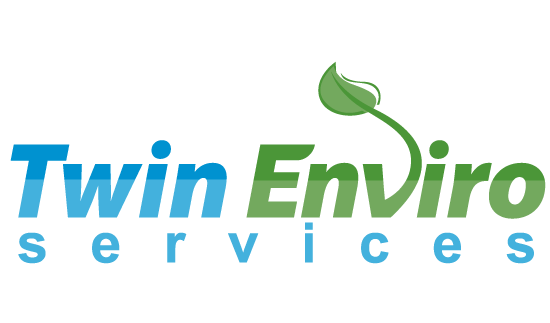
Twin offers environmental remediation services through partnerships with hazardous materials subcontractors. Twin features fast response times to contain, transport, and then dispose of transportation spills, tank leaks, and contaminated soils. Located at 3602 Freedom Rd. Trinidad, CO 81082.
Hours of Operation
Monday – Friday: 08:00 to 05:00pm
Saturday and Sunday: Closed
Phone: (719) 846-4030
Fax (815) 377-2495
After Hours: (719) 859-1722
Tank Cleaning
We are certified and experienced in CSE for Cleaning of Frack Tanks, Truck Tanks, Tanker Washouts and Above-Ground Storage Tanks, so that only trained personnel enter into and work on your equipment. We use ventilation equipment, air quality monitoring instruments, and a “hole man” for safe operations.
For Frack and other Tanks that are movable, we recommend they be brought to one of our sites. Twin’s tank washing is efficiently performed in a completely lined and fully contained basin so that the tanks’ contents and used washwater is not discharged into the environment. The used contents are carefully removed from the bottom of the basin and the sump, filtered, and disposed of in full compliance with liquid and/or solid waste regulations.
Twin has experience with other CSE projects including manholes, “pigging “ equipment, and the removal, solidification and disposal of liquids from cleanups and spills.
Find Tank Wash – Trailer Wash near me
Shippers, carriers, and drivers who need to Find a Tank Wash prior to heading to their next load can lean on TBS Directory. This online tool enables carriers, drivers and transportation professionals to quickly locate Tanker Washout Facilities across the U.S. and Canada. While there are a few similar directories in existence, TBS Directory, LLC is the most comprehensive – providing detailed information on facilities and services for over 400 wash facilities in North America, along with Truck Repair, Trailer Repair, Road Service, Truck Stops, Tires, etc
One of the biggest differences between liquid bulk and other kinds of freight trucking is the need to wash the tank tank after unloading. Tank washing is a vital part of bulk liquid shipping that prevents cross contact of products and contamination.
Trailer Tank Wash Locations
Tank washes add extra time to every shipment. After delivering a load, the driver might have to travel an hour or more — maybe even to another state — to reach a acceptable tank wash location. Not every washing facility is designed to clean every liquid bulk tank. Some handle chemicals only, while others are designed only for food-grade loads. Some have limitations on the products they can wash due to, various limitations including regional groundwater restrictions.
Once the driver arrives at the tank wash facility, he or she will likely need to wait his or her turn to be cleaned. This is then followed by the tank wash itself, which can take several hours. A wash can be more time consuming if there is difficulty removing excess liquids (or ‘heel’) out of the tank before washing.
Washes also add cost, not only the empty deadhead miles to the tank wash, but also the cost of the tank wash. The cost of washing the trailer may appear on the shipper’s freight bill as a separate accessorial charges. For some products, bulk liquid tanker carriers will apply a standard washing charge. For others, the carrier will pass along the actual dollar amount that the Tank Wash Location charges.
What are accessorial charges?
What are accessorial charges? Accessorial charges in transportation are fees levied by freight transportation carriers for services that go beyond standard pick-up and delivery. Accessorial charges or accessorial fees are usually applied when there is a need for additional labor, equipment, time, or fuel, including tank washes.
Tank Wash Facilities
Tank wash facilities are located across North America and will typically wash out the tank in one of the following ways.
The most common type of tank wash is performed with a caustic soda solution or detergent. The solution will be placed inside a spinning mechanism that is inserted into the tank through the dome. This mechanism spins around and sprays the solution all over the tank, which is then rinsed, drained, and dried afterward.
A similar process is used for food-grade washes – which use specialized food-grade detergents – and Kosher washes – which only use Kosher-certified materials to wash the tank.
In many cases, the tanker’s gaskets, hoses, and pumps will be cleaned along with the inside of the tank, not all carriers have trailers that have pumps and hoses, along with in transit heat or Texas wash systems, these are all considered specialty tank trailers.
When products such as food allergen’s and other types of bulk liquids are exposed to one another, contamination can occur. Even a small trace of the tank’s previous product can have a huge negative impact on the next product being loaded. As such, once a product is hauled in a liquid bulk tanker and unloaded at the delivery site, that tank will need to be thoroughly washed before it can be loaded with another product.
Bulk Tank Trailer Cleaning
Many shippers will have specific tank wash requirements. These can include ‘non acceptable prior products’ which means this trailer cannot be used to load the potential load, unless, a acceptable special type of cleaning has been preformed, by a approved tank wash facility. Upon arrival at a shipper, the truck driver will need to show the washout slip which displays the details of the type tank wash performed, along with the last 3 prior products hauled.




